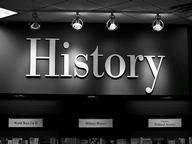Quiz Answer Key and Fun Facts
1. The major aspect of representative democracy is representation: how will citizens' opinions be incorporated into policymaking institutions? In the modern world, two common forms of representative democracy exist: presidential and parliamentary systems. Politopia will be the latter. Which of these is characteristic of a parliamentary system?
2. Politopia's Parliament will be elected by the people through a proportional representation scheme. This means that if 25% of the people vote for the Blue Party, then Blue earns 25% of seats in the legislature. Which of these is a common benefit of proportional representation schemes over plurality systems?
3. Members of Politopia's legislature are connected to the people through linkage institutions, such as interest groups. In Politopia, interest groups aren't officially recognized by the government, and compete with each other for access to policymakers. What is the name for this system in which "multiple" groups exert political interest?
4. Consider Joe Q., an average but politically-minded citizen of Politopia. Joe wants to participate in government and is successfully hired as a member of Politopia's bureaucracy because of his ability. Thus, Politopia has a merit system for hiring civil servants. In which of the following systems would people be hired based on political connections, or "who you know"?
5. Luckily for Politopia's citizens, the new country's constitution created a powerful judiciary. An independent judiciary can ensure that democracy does not transition into less representative forms of government. Politopia's constitution also calls for judicial review. What is judicial review?
6. Politopia covers a fairly large geographic expanse, and after several years of trying to centralize political authority, the central government amended the constitution to allow for sovereign sub-national governments. These governments would have certain powers that the national government could not encroach upon, and there would be some cooperation over policy between both spheres. Which of these words best describes Politopia's government?
7. Given its fairly brief history, "Politopia" is a strong democracy that looks stable. In line with common modern trends around the world, particularly those described by economist Milton Friedman, which of these most likely describes Politopia's economy?
8. Politopia's democratic traditions have resulted in a relatively free country and a vibrant civil society. Civil society consists of social activity outside the scope of government, and is often a good measure of the stability of a democracy. Which of the following would be considered an element of civil society?
9. Politopia gets into a war with its neighbor Unfreeland, which holds regular elections and has a directly elected legislature. However, Unfreeland lacks transparency in government and restricts the freedoms of speech and assembly of its citizens. Neither the judiciary nor the media has the power to limit the authority of the powerful president. Which of these terms, coined by Fareed Zakaria in 1997, best describes Unfreeland?
10. Democracy in Politopia relies on support from the governed, who must believe that they can have their voices heard in government. Acceptance of a government's right to rule is called legitimacy. Which of the following is NOT a major source of legitimacy for a government?
Source: Author
adams627
This quiz was reviewed by FunTrivia editor
stedman before going online.
Any errors found in FunTrivia content are routinely corrected through our feedback system.
